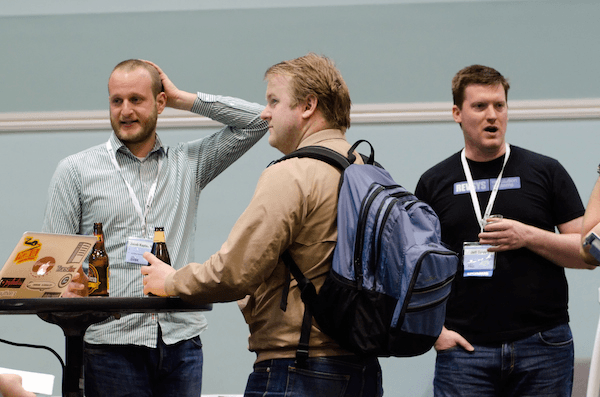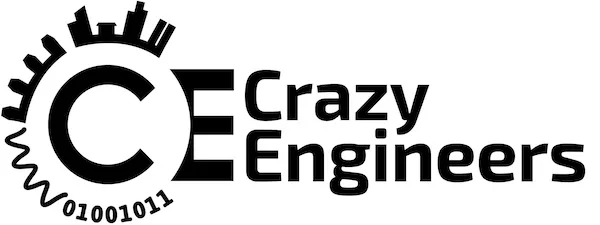"Entrepreneurship is building the change you wish to see in the world." - Frank Wiles, CEO, Grove

Grove.io was launched with an aim to reduce the time for setting up an IRC server. Built on the IRC protocol, Grove.io allows businesses to set up their own web-based private IRC server that includes various features such as archives, search and channel access controls.
Frank Wiles is the President and Founder of Revolution Systems. Revolution Systems acquired Grove in September 2012. Frank is the CEO of Grove.
In an exclusive interview with CrazyEngineers, Frank talks about Grove.io and various changes in the organization after its acquisition, the risks faced by any startup and the importance of mentors. Frank also shares his definition of an entrepreneur, what he enjoys most as an entrepreneur and the various challenges any startup has to go through and the lessons he learnt in his journey.
Read the following interview to know more.

CE: Could you please tell our readers more about Grove.io?
Frank: Grove is a web based group chat service, primarily focused towards business use. The primary difference between us and our competitors is that we have a unique IRC interface for the more technical users in an organization. Many tools in this space are web only or at least require the user to use a specific desktop client. Teams using Grove can have some members using the web interface and others using their favorite IRC client. It allows geeks to hang out in their favorite public IRC channels and private secured work channels at the same time and in the same app.
Organizations could run their own IRC service internally, but that would force some users to install a client and become familiar with IRC which isn't ideal. They would also have to implement their own security, chat archive, and search features which aren't trivial to implement, but become powerful tools when you can quickly find that thing your co-worker was talking about last week.
CE: How has Grove.io changed after its acquisition by Revolution Systems in September 2012?
Frank: Most of our time initially was spent solidifying and improving the infrastructure. Like most startups, Grove correctly plowed through features and bugs that were the most user impacting at the expense of some speed and stability. RevSys focuses on scalability and performance, so not only did these issues hurt our soul a little bit they are bad for overall customer satisfaction. Once the foundation was a bit more stable, we did things such as improved the speed of the web UI 400% and decreased the transport time of messages by 200%. We moved from MySQL to PostgreSQL for familiarity, performance, and feature reasons. Same with our recent move from Solr to Elastic Search. While Grove was always "real time", the overall snappiness of the app now makes it feel even more so. After those things we've added a few new features that users had been requesting. Desktop Notifications to avoid missing messages when you aren't staring at your Grove tab, easier ways to export chat histories, supporting things like '@all' and '@here' to direct messages to everyone or just online users, and the ability to have unarchived rooms for more sensitive communications. And of course we've fixed several bugs users have uncovered or we've introduced during these changes. It *IS* software after all!
CE: What according to you can be the biggest risk to any startup?
Frank: Growing too fast kills more businesses than anything other than cash flow. You may have and see the opportunity to grow 2-3x this year, but chasing that may not be in your best interests long term. 5 years of 25% growth beats a year of 3x growth followed by a total business failure any day. The proverbial "hockey stick" growth curve is great if you can manage it, but always keep in mind the startup community idolizes this for two reasons. For one it's human nature to like "rags to riches" stories and founders/companies going from zero to millions of dollars quickly. The other reason is Angels and VCs need these types of returns on their investments, in relatively short time frames, to balance out all of the failures they bet on to make their own investors happy.
Yes, not minding your cash flow, product/market fit, crappy design, bad ideas, toxic work environments, etc. are also big risks but so is doubling your costs on expenses you don't yet need chasing growth. You should always be growing, but it's ok to do it at a pace you are capable of actually managing.
CE: If you could describe being an entrepreneur in one sentence, what would it be?
Frank:
Reworking the Gandhi quote, "Building the change you wish to see in the world."
You get to build the product or service you wish existed the way you think it should be done. You also get to personally craft your work environment, your team, and have a very direct impact on how your day to day life is structured much more so than working for someone else.
CE: What do you enjoy most about being an entrepreneur? How do you manage the stress?
Frank: Personally, I enjoy the variety of our consulting work at Revolution Systems to avoid getting bored with a single problem or product. When I worked at other companies my most successful roles were where I bounced around a variety of different challenges constantly rather than deeply focusing on a single area. As it turned out, those roles were excellent training in being a consultant as I was already experienced in being an "internal consultant" if you will. Every problem is different, but after tackling lots of them you gain the experience that they all have many commonalities. That's not to say I don't enjoy working on our products like Grove, they too are a different problem than I worked on yesterday or last week. Apparently I get bored easily!
I've always struggled with stress. Everyone does, but entrepreneurs are especially afflicted.
The things that have helped me most are turning off email notifications and only dealing with email at a couple of points per day, doing my best to get enough sleep each night and ensuring I have at least one entire day off per week no matter what is going on.
It's very tempting, even fun most of the time, to push yourself too hard one day, week, or month but you're seriously sacrificing your productivity for the next day, week, month when you do that. Remember, if you're doing it right it's a marathon not a sprint.
 The Grove Team
The Grove Team
CE: What is the single best piece of business advice that helped you become a successful entrepreneur today? Why do you consider it the best?
Frank: To focus a business VERY narrowly. Grove is a chat service for companies that want an IRC interface. RevSys specializes in performance and scalability of a narrow set of technologies and developer teams. We aren't everything to everyone. We aren't even trying to be some things to most people. No one goes to the organic vegetable market, nail salon and drive through neurology clinic. That's not even a business, that's a neurologist with some hobbies.
Be one thing, but be the best at it. When that thing is doing well and mostly on autopilot, only THEN consider adding in a second thing.
It's the best advice because it simplifies everything about your business and lends credibility. You know who your customers are, how/where to market to them, what equipment you need, and what type and how many employees you need to succeed. And most importantly it shows you what you don't need.
CE: Could you please describe a pitfall that you were able to avoid because of a mentor’s advice? What would be your advice to engineers who aim to be entrepreneurs?
Frank:
One of my best bosses always referenced the military quote, "No plan survives first contact with the enemy." While it's important to plan, life is not going to go according to the plan you painstakingly wrote down. Have a Plan B, and C, and D!
Realizing that your plan needs to be very fluid makes you realize that while you need to think through the dozen or so different ways it could pan out maybe you don't even need to write it down formally. My first few attempts at building successful businesses always withered on the vine as they were all planning, little execution, and not quickly adjusting to obvious places where the almighty plan needed to be thrown out entirely. Now I "plan" by thinking through as many possible outcomes as I can think up and have what most might not even consider a rough outline of a plan for what we do depending on which actually happens.
Engineers absolutely have to switch gears and focus on their soft skills. Your tech talents are what are bringing you to this table and are useful in building the product and making it amazing from a technically.
That doesn't matter at all if no one knows about it (marketing), no one pays you to use it (sales), your tech team sucks (people/management skills), you can't pay them (accounting/cash flow), customers don't like using it (design), you get sued out of existence (legal) or talk badly about you (customer service). You don't have to become an expert at all of these, although it sure would help, but all of your learning needs to be focused on these areas and not that hottest new technology fad.
CE: Could you share the lessons you have learnt as an entrepreneur while starting, building & growing several big organizations?
Frank: Well I'm not sure I'd call them big, they could definitely be bigger! (See question #3)
You have to always be learning and adjusting. Learning what you aren't good at and adjusting things so you don't have to do that.
That the 80/20 principle is absolutely how the world works. 80% of your successes are going to come from 20% of your actions. Getting even marginally better at recognizing the 20% will pay far higher dividends long term than killing yourself by trying to do 120% percent. In sports you always hear "They gave a 110%", being geeks we all know this isn't even mathematically possible with time, but still we push ourselves to do more and more. Instead of trying to do more, just focus on doing better than yesterday.
CE: Thank you for your time. Any message for engineers who want to be techpreneurs?
Frank: You can absolutely do it, but make sure you really want to. Starting and running a business eats up a lot of your energy and consumes your life in many ways. Will even the best outcome be enough to justify it to yourself?
If you simply want to make more money than your current job, even lots more money, there are many other ways to do that which don't involve a CEO title.
